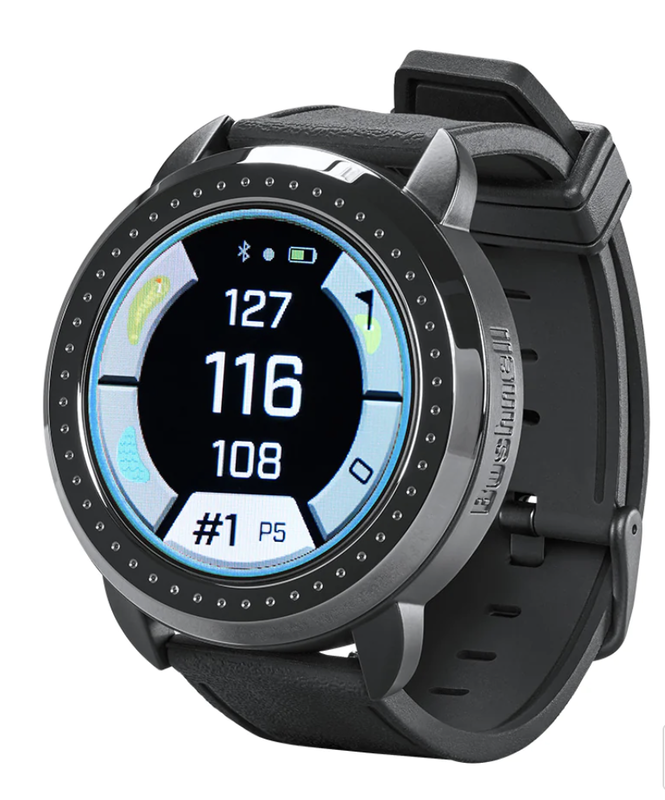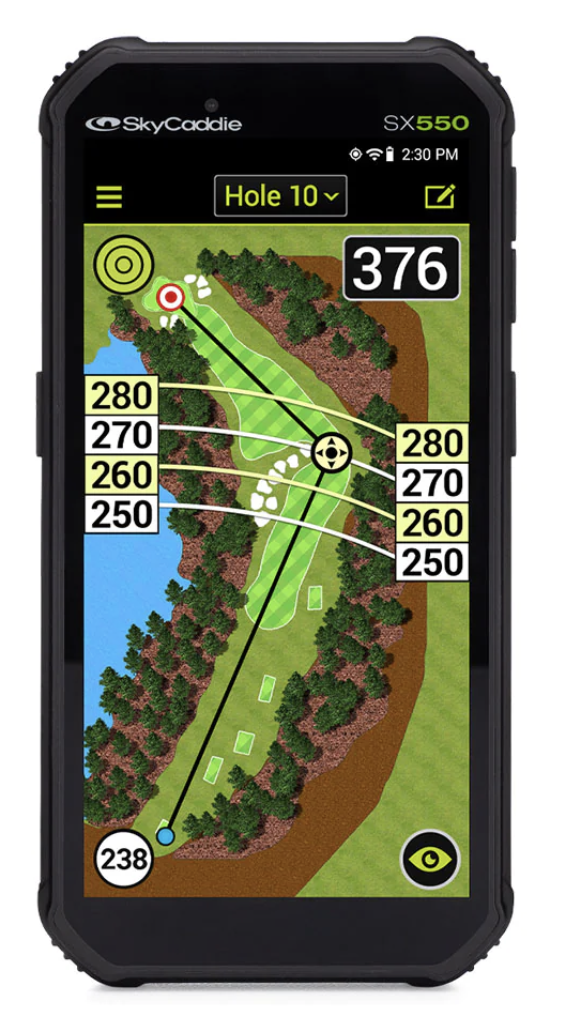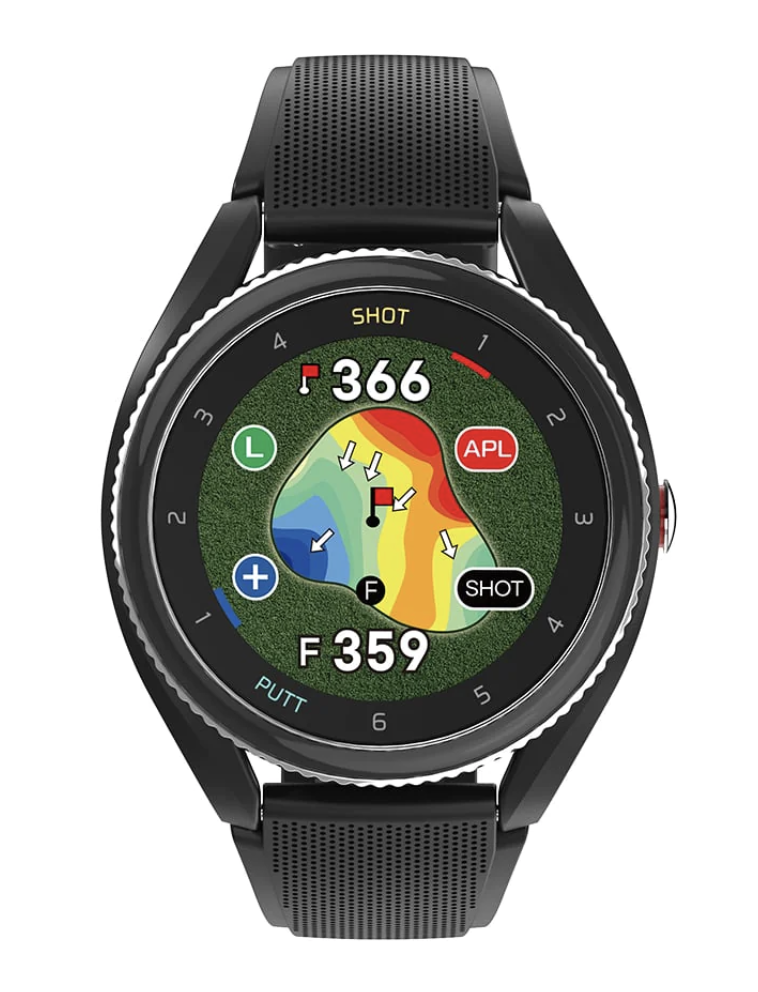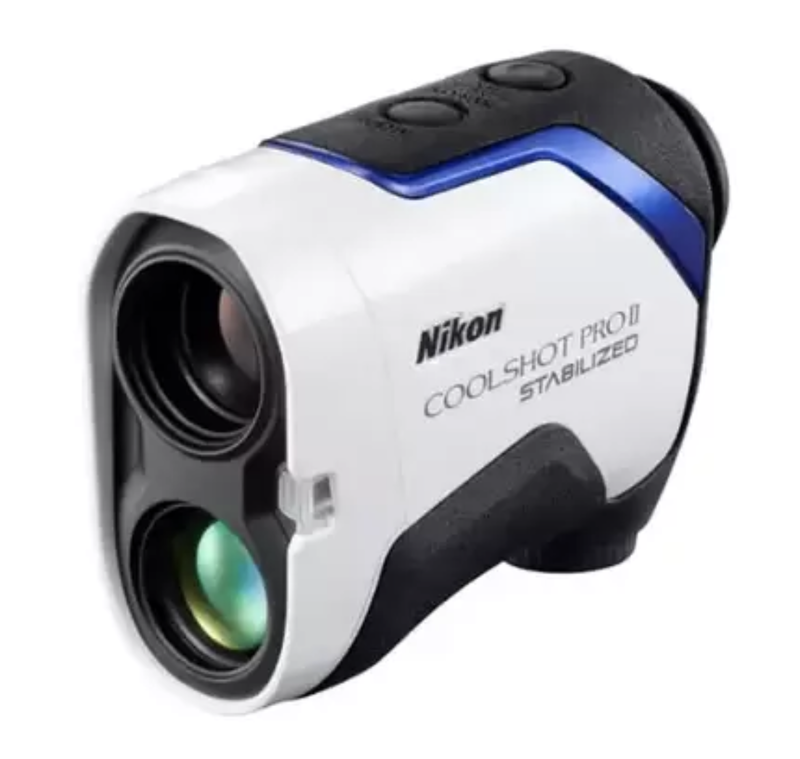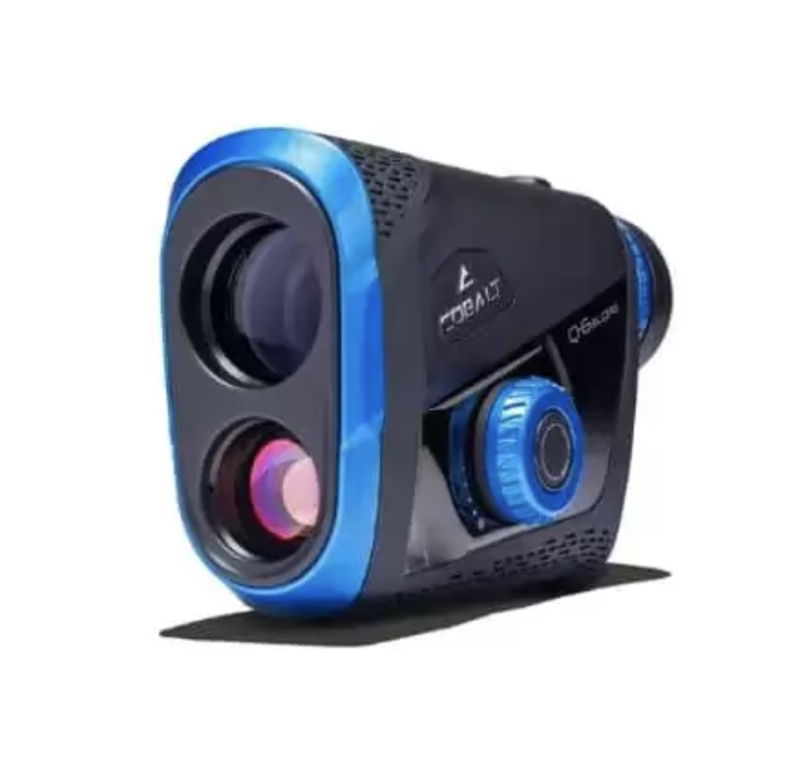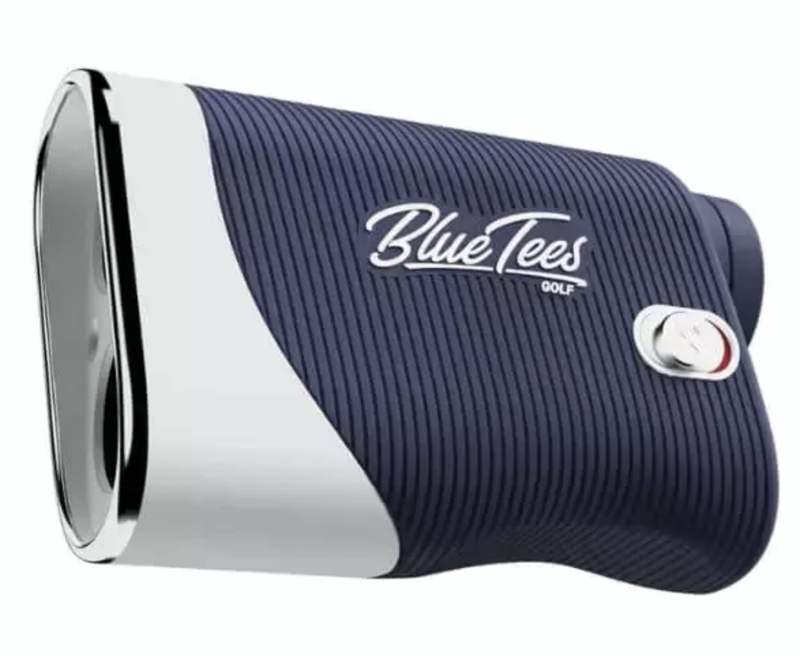Golf GPS versus Laser Rangefinder
When it comes to golf, choosing between a Golf GPS versus laser rangefinder can be difficult. Both provide a great way to improve your game, but each has its own advantages and disadvantages.
Golf GPS devices provide an overall view of the course layout and provide distances to the front, center, and back of the green. They are easier to use and require less time to master, making them ideal for novice golfers. They are a great choice for players who need to quickly get the distance to a hazard or other point of interest.
On the other hand, laser rangefinders provide a more accurate measurement of the distance to the target. They are more powerful and provide more precise measurements, making them better suited for measuring the distance from one point to another. They do, however, require more practice to master and are more costly than a GPS device.
In the end, the decision between a GPS device and a laser rangefinder comes down to personal preference and the type of game you’re playing. Both tools can be incredibly useful and can help you improve your performance on the golf course.
Golf GPS devices provide an overall view of the course layout and provide distances to the front, center, and back of the green. They are easier to use and require less time to master, making them ideal for novice golfers. They are a great choice for players who need to quickly get the distance to a hazard or other point of interest.
On the other hand, laser rangefinders provide a more accurate measurement of the distance to the target. They are more powerful and provide more precise measurements, making them better suited for measuring the distance from one point to another. They do, however, require more practice to master and are more costly than a GPS device.
In the end, the decision between a GPS device and a laser rangefinder comes down to personal preference and the type of game you’re playing. Both tools can be incredibly useful and can help you improve your performance on the golf course.
Golf GPS Devices
GPS is an amazing technology. Golf can be an intimidating game for newcomers and even experienced players. But with the help of the right technology, the game can be much more enjoyable. Golf GPS devices and laser rangefinders are two popular options for golfers looking to improve their game.
Golf GPS devices are a popular choice for golfers looking for an easy-to-use yardage device. GPS units come pre-programmed with a course's information, including yardages to the front, middle, and back of greens, hazards, bunkers, and other features. Basic front-middle-back distances on these devices are the biggest advantage for recreational golfers. Golf GPS devices are also generally more affordable than laser rangefinders, and typically much smaller and lighter, making them easier to carry on the course.
Golf GPS devices provide golfers with accurate distances with minimal effort and time. Plus, GPS systems can easily be updated with new course information, allowing golfers to play courses they are unfamiliar with with confidence.
Whether you're a beginner or a seasoned golfer, GPS devices provide an easy and accurate way to get yardage information fast. With the right GPS device, golfers can improve their game and enjoy the course more.
Golf GPS devices are a popular choice for golfers looking for an easy-to-use yardage device. GPS units come pre-programmed with a course's information, including yardages to the front, middle, and back of greens, hazards, bunkers, and other features. Basic front-middle-back distances on these devices are the biggest advantage for recreational golfers. Golf GPS devices are also generally more affordable than laser rangefinders, and typically much smaller and lighter, making them easier to carry on the course.
Golf GPS devices provide golfers with accurate distances with minimal effort and time. Plus, GPS systems can easily be updated with new course information, allowing golfers to play courses they are unfamiliar with with confidence.
Whether you're a beginner or a seasoned golfer, GPS devices provide an easy and accurate way to get yardage information fast. With the right GPS device, golfers can improve their game and enjoy the course more.
Types of Golf GPS Devices
When it comes to golfing, having the right equipment is essential to improving your game. Two of the most popular pieces of equipment are golf GPS devices and laser rangefinders. Both of these gadgets provide golfers with important information that can help them make better decisions on the course. In this article, we’ll take a closer look at the differences between golf GPS devices and laser rangefinders.
Golf GPS devices are designed to provide accurate yardage information from the course you’re playing. There are three types of golf GPS devices: smartphone apps, dedicated GPS units, and GPS watches. Smartphone apps use the GPS on your phone to give you accurate distance information from the course you’re playing. Dedicated GPS units are stand-alone devices that provide yardage information from the course you’re playing. Finally, GPS watches are wearable devices that provide you with yardage information from the course you’re playing.
On the other hand, laser rangefinders are devices that use lasers to measure the distance between you and the target. These devices can be used to measure the distance to the pin, or any other point on the course. Laser rangefinders are more accurate than GPS devices, but they are also more expensive.
In the end, it really comes down to what you need from your equipment. If you’re looking for accuracy, then a laser rangefinder might be the best option.
Golf GPS devices are designed to provide accurate yardage information from the course you’re playing. There are three types of golf GPS devices: smartphone apps, dedicated GPS units, and GPS watches. Smartphone apps use the GPS on your phone to give you accurate distance information from the course you’re playing. Dedicated GPS units are stand-alone devices that provide yardage information from the course you’re playing. Finally, GPS watches are wearable devices that provide you with yardage information from the course you’re playing.
On the other hand, laser rangefinders are devices that use lasers to measure the distance between you and the target. These devices can be used to measure the distance to the pin, or any other point on the course. Laser rangefinders are more accurate than GPS devices, but they are also more expensive.
In the end, it really comes down to what you need from your equipment. If you’re looking for accuracy, then a laser rangefinder might be the best option.
Key Features of Golf GPS Devices
Golf GPS devices are becoming increasingly popular for golfers looking for an accurate and easy way to measure distances to hazards and the green. With a golf GPS device, you can store and access course maps of thousands of courses around the world, track scores and stats to monitor your performance, and automatically detect and record shot distances. Not only that, but these devices also provide detailed aerial views of courses, as well as personalized recommendations for club selection.
Golf GPS devices also have a range of other features to make them an even more useful tool. You can receive notifications of upcoming tournaments and local course conditions, sync data with compatible mobile devices for easy analysis and sharing, receive detailed weather forecasts and wind speeds for each hole, and pre-load course maps for offline use in English (US) language. With all these features, a golf GPS device is a must-have for any golfer looking to improve their game.
On the other hand, laser rangefinders are also a popular choice for golfers looking for an accurate way to measure distances. Laser rangefinders are more precise than GPS devices, but they don’t come with all the same features. While they can accurately measure distances, they don’t have the same range of features such as personalized recommendations or detailed weather forecasts. They may also have features like slope adjustment that you may have to turn off in tournaments.
Overall, both golf GPS devices and laser rangefinders are great tools for any recreational or competitive golfer looking to improve their game. When deciding between the two, it’s important to understand the combination of features offered and which best fit your needs. A key feature is to make sure your course is on the GPS device. If it is not, using your GPS device will become a frustrating exercise in futility.
Golf GPS devices also have a range of other features to make them an even more useful tool. You can receive notifications of upcoming tournaments and local course conditions, sync data with compatible mobile devices for easy analysis and sharing, receive detailed weather forecasts and wind speeds for each hole, and pre-load course maps for offline use in English (US) language. With all these features, a golf GPS device is a must-have for any golfer looking to improve their game.
On the other hand, laser rangefinders are also a popular choice for golfers looking for an accurate way to measure distances. Laser rangefinders are more precise than GPS devices, but they don’t come with all the same features. While they can accurately measure distances, they don’t have the same range of features such as personalized recommendations or detailed weather forecasts. They may also have features like slope adjustment that you may have to turn off in tournaments.
Overall, both golf GPS devices and laser rangefinders are great tools for any recreational or competitive golfer looking to improve their game. When deciding between the two, it’s important to understand the combination of features offered and which best fit your needs. A key feature is to make sure your course is on the GPS device. If it is not, using your GPS device will become a frustrating exercise in futility.
Pro's and Con's of Golf GPS Devices
Golf GPS systems offer a convenient and user-friendly way to get accurate yardage to the green on any course. With features like shot tracking, scorecards, and more, golf GPS systems are a great option for golfers looking for an easy-to-use, lightweight, and portable device. However, golf GPS systems do have some drawbacks that should be considered when choosing between a golf GPS and laser rangefinder.
The biggest issue with golf GPS systems is that they are heavily reliant on satellite signals, which can be unreliable in certain areas. Additionally, golf GPS systems are not as accurate as laser rangefinders. Furthermore, battery life can be short-lived if used frequently, and they can be costly compared to a laser rangefinder.
Ultimately, the choice between a golf GPS and laser rangefinder comes down to the individual golfer’s needs. If you’re looking for an easy-to-use device with a wide range of features, a golf GPS is a great option. However, if accuracy and reliability are your top concerns, you may want to consider investing in a laser rangefinder. If you want the best golf GPS device with the right combination of features, check out our golf GPS article.
The biggest issue with golf GPS systems is that they are heavily reliant on satellite signals, which can be unreliable in certain areas. Additionally, golf GPS systems are not as accurate as laser rangefinders. Furthermore, battery life can be short-lived if used frequently, and they can be costly compared to a laser rangefinder.
Ultimately, the choice between a golf GPS and laser rangefinder comes down to the individual golfer’s needs. If you’re looking for an easy-to-use device with a wide range of features, a golf GPS is a great option. However, if accuracy and reliability are your top concerns, you may want to consider investing in a laser rangefinder. If you want the best golf GPS device with the right combination of features, check out our golf GPS article.
Golf Rangefinders
When it comes to measuring the distance to the green, golfers have two main options: GPS devices and Laser Rangefinders. Both devices provide accurate measurements of distance, but they have different strengths and weaknesses that make them better suited for different types of players.
Laser Rangefinders rely on a beam of light that bounces off the target and back to the device. This gives you instantaneous feedback on the exact distance to the target, making them ideal for golfers who need to hit the ball precisely. However, they are more expensive than GPS devices, and they may be less accurate if there are numerous obstacles that might block the laser beam.
GPS devices, on the other hand, use a satellite connection to triangulate the golfer's exact position. While this typically takes a few moments to acquire a satellite signal, it works best in open areas with a clear view of the sky. Therefore, GPS devices are better for golfers who just want to know the yardage to the green.
Ultimately, both GPS devices and Laser Rangefinders can provide accurate measurements of distance, but it depends on the individual golfer's needs and preferences. Those who require precise measurements should opt for a Laser Rangefinder, while those who are just looking for a quick estimate should choose a GPS device.
Laser Rangefinders rely on a beam of light that bounces off the target and back to the device. This gives you instantaneous feedback on the exact distance to the target, making them ideal for golfers who need to hit the ball precisely. However, they are more expensive than GPS devices, and they may be less accurate if there are numerous obstacles that might block the laser beam.
GPS devices, on the other hand, use a satellite connection to triangulate the golfer's exact position. While this typically takes a few moments to acquire a satellite signal, it works best in open areas with a clear view of the sky. Therefore, GPS devices are better for golfers who just want to know the yardage to the green.
Ultimately, both GPS devices and Laser Rangefinders can provide accurate measurements of distance, but it depends on the individual golfer's needs and preferences. Those who require precise measurements should opt for a Laser Rangefinder, while those who are just looking for a quick estimate should choose a GPS device.
Types of Golf Rangefinders
Golfers are always looking for the most accurate way to measure their shots on the course, and rangefinders have become an essential piece of equipment. Rangefinders come in a variety of types, each offering different technologies and capabilities.
GPS rangefinders are a great option for golfers looking for precise yardage to the greens, hazards, and other targets on the course. GPS rangefinders use satellite technology to provide the most accurate readings on the course.
Laser rangefinders are another popular choice for golfers and utilize laser beams to measure the distance to the flag or other objects. Laser rangefinders are a great option for golfers who need to quickly measure their shots and are usually more affordable than GPS rangefinders.
Hybrid rangefinders combine both GPS and laser technology to provide yardage data on the course. These rangefinders are great for golfers who want the accuracy of a GPS rangefinder and the convenience of a laser rangefinder.
Vertical rangefinders utilize a vertical angle to measure the distance from the user to the target. These rangefinders are great for golfers who need to measure shots over obstacles, such as trees or hills.
Slope rangefinders use advanced technology to calculate the distance from any point to the target, taking into account the elevation change. These rangefinders are great for golfers who need to measure shots on courses with a lot of elevation change.
GPS rangefinders are a great option for golfers looking for precise yardage to the greens, hazards, and other targets on the course. GPS rangefinders use satellite technology to provide the most accurate readings on the course.
Laser rangefinders are another popular choice for golfers and utilize laser beams to measure the distance to the flag or other objects. Laser rangefinders are a great option for golfers who need to quickly measure their shots and are usually more affordable than GPS rangefinders.
Hybrid rangefinders combine both GPS and laser technology to provide yardage data on the course. These rangefinders are great for golfers who want the accuracy of a GPS rangefinder and the convenience of a laser rangefinder.
Vertical rangefinders utilize a vertical angle to measure the distance from the user to the target. These rangefinders are great for golfers who need to measure shots over obstacles, such as trees or hills.
Slope rangefinders use advanced technology to calculate the distance from any point to the target, taking into account the elevation change. These rangefinders are great for golfers who need to measure shots on courses with a lot of elevation change.
Key Features of Golf Rangefinders
Golfers know that having the right equipment can make all the difference in their game. When it comes to yardage measurement, there are two main categories of devices: laser rangefinders and golf GPS units.
Laser rangefinders are highly accurate and can measure distances up to 1,000 yards. Most laser rangefinders come with pin-lock, which locks onto the flagstick for more accurate readings. Some laser rangefinders also feature slope technology that calculates the degree of incline or decline and adjusts the yardage accordingly. Others even include adjustments for the temperature and wind, subtracting distance on down wind shots. Laser rangefinders are easy to use and offer fast readings, so you can quickly get the yardage you need.
Golf GPS units are typically more affordable and can be used for multiple sports. GPS rangefinders offer pre-loaded courses and hazards, so you can easily plan your shots. GPS rangefinders provide real-time course mapping and shot distances, so you can easily track your performance. GPS rangefinders are also easy to use and offer quick and reliable readings. The Skycaddie intelligreen® can even provide distances to key green contours including false fronts. Knowing the distance to clear a false front can be the difference between a birdie and a bogey.
Both laser rangefinders and golf GPS units offer excellent accuracy and convenience for golfers of all levels. Whether you go with a laser rangefinder or a GPS unit, you can be sure that you will have the right yardage for each shot.
Laser rangefinders are highly accurate and can measure distances up to 1,000 yards. Most laser rangefinders come with pin-lock, which locks onto the flagstick for more accurate readings. Some laser rangefinders also feature slope technology that calculates the degree of incline or decline and adjusts the yardage accordingly. Others even include adjustments for the temperature and wind, subtracting distance on down wind shots. Laser rangefinders are easy to use and offer fast readings, so you can quickly get the yardage you need.
Golf GPS units are typically more affordable and can be used for multiple sports. GPS rangefinders offer pre-loaded courses and hazards, so you can easily plan your shots. GPS rangefinders provide real-time course mapping and shot distances, so you can easily track your performance. GPS rangefinders are also easy to use and offer quick and reliable readings. The Skycaddie intelligreen® can even provide distances to key green contours including false fronts. Knowing the distance to clear a false front can be the difference between a birdie and a bogey.
Both laser rangefinders and golf GPS units offer excellent accuracy and convenience for golfers of all levels. Whether you go with a laser rangefinder or a GPS unit, you can be sure that you will have the right yardage for each shot.
Pro's and Con's of Golf Rangefinders
Golf rangefinders have become increasingly popular with golfers of all skill levels. Rangefinders offer an accurate way to measure the distance from the golfer to their target, allowing them to make informed decisions on their next shot. The primary benefit of rangefinders is the accuracy of their readings, with some models offering up to 1,000 yards of accuracy. Rangefinders also feature slope adjustments to account for elevation changes, making them useful for more challenging courses.
Rangefinders are also very easy to use and convenient to carry. Most rangefinders are designed in a compact and lightweight form, making them easy to slip into a pocket or golf bag. Unfortunately, rangefinders are more expensive than GPS devices and may be prone to inaccuracies due to objects in the environment, such as trees or buildings. Rangefinders are also limited to one-shot readings and cannot provide multiple-shot readings. You will also have to switch off the slope feature in some competitive settings.
Overall, rangefinders provide golfers with an accurate and convenient way to measure distances on the course. While they may be more expensive than GPS devices, a golf rangefinder is still a great option for golfers who are looking for an accurate distances. If you want to learn more, check out our article on the best golf rangefinder.
Rangefinders are also very easy to use and convenient to carry. Most rangefinders are designed in a compact and lightweight form, making them easy to slip into a pocket or golf bag. Unfortunately, rangefinders are more expensive than GPS devices and may be prone to inaccuracies due to objects in the environment, such as trees or buildings. Rangefinders are also limited to one-shot readings and cannot provide multiple-shot readings. You will also have to switch off the slope feature in some competitive settings.
Overall, rangefinders provide golfers with an accurate and convenient way to measure distances on the course. While they may be more expensive than GPS devices, a golf rangefinder is still a great option for golfers who are looking for an accurate distances. If you want to learn more, check out our article on the best golf rangefinder.
Comparison of Golf GPS and Golf Rangefinders
When it comes to choosing the right golf equipment to improve your game, it can be difficult to decide between a golf GPS versus laser rangefinder. Both are designed to provide yardage information to the golfer, but there are some key differences between the two.
Golf GPS units provide yardage information to the golfer based on a pre-loaded course map. This information is easy to access and provides an overview of the entire course and its surroundings. Additionally, they tend to be more user-friendly and less expensive than laser rangefinders.
Laser rangefinders, on the other hand, provide yardage information based on a laser that is shot out and measures the distance to the target. This provides a much more precise measurement than a golf GPS unit, and can even measure the exact distance to a target even if it is partially hidden by an obstacle. While laser rangefinders are generally more accurate, they are also more expensive and require more user interaction to operate.
Golf GPS units are great for golfers who are playing on a course for the first time, as they provide a comprehensive overview of the course. They are also convenient to use and allow the golfer to quickly access yardage information for every hole on the course. Laser rangefinders, however, are better for experienced golfers who want to get the exact distance to a specific target.
When evaluating a golf GPS versus laser rangefinder, it comes down to the features you want. If you want to see a map with multiple distances, pick a GPS unit. If you want a precise measurement to a specific target, go for a laser rangefinder.
Golf GPS units provide yardage information to the golfer based on a pre-loaded course map. This information is easy to access and provides an overview of the entire course and its surroundings. Additionally, they tend to be more user-friendly and less expensive than laser rangefinders.
Laser rangefinders, on the other hand, provide yardage information based on a laser that is shot out and measures the distance to the target. This provides a much more precise measurement than a golf GPS unit, and can even measure the exact distance to a target even if it is partially hidden by an obstacle. While laser rangefinders are generally more accurate, they are also more expensive and require more user interaction to operate.
Golf GPS units are great for golfers who are playing on a course for the first time, as they provide a comprehensive overview of the course. They are also convenient to use and allow the golfer to quickly access yardage information for every hole on the course. Laser rangefinders, however, are better for experienced golfers who want to get the exact distance to a specific target.
When evaluating a golf GPS versus laser rangefinder, it comes down to the features you want. If you want to see a map with multiple distances, pick a GPS unit. If you want a precise measurement to a specific target, go for a laser rangefinder.
How to pick the right device for you
Golfers are often faced with the decision of whether to choose a golf GPS versus laser rangefinder. When making this decision, there are several factors to consider. First and foremost, consider your budget, as the best golf rangefinder tends to be more expensive than GPS devices. Next, consider the range of features each device offers. For example, does the GPS device provide real-time information or just basic distances? Additionally, consider the size and weight of the device. Some laser rangefinders are much bulkier than GPS units, so if weight and portability are important to you, you should look for a lighter and more compact device.
When choosing a device, also think about whether you want a device with a built-in display or one that’s connected to your smartphone. This can be an important distinction, as GPS devices that are connected to your phone tend to offer more features and can be updated more easily. Finally, consider whether you want additional features such as scorecards, stat tracking and hazard warnings. Many GPS devices come with these features but may require a membership or subscription to access them.
When choosing a device, also think about whether you want a device with a built-in display or one that’s connected to your smartphone. This can be an important distinction, as GPS devices that are connected to your phone tend to offer more features and can be updated more easily. Finally, consider whether you want additional features such as scorecards, stat tracking and hazard warnings. Many GPS devices come with these features but may require a membership or subscription to access them.
Frequently Asked Questions
If you are a golfer who wants to improve your game, you may be wondering about the differences between a golf GPS and a laser rangefinder. Both devices can provide accurate readings of the distance to the pin, helping you make better decisions on the course. But which one is right for you?
What is the main difference between a golf GPS and a laser rangefnder?
The main difference between a golf GPS and a laser rangefinder is that a golf GPS uses satellite technology to provide you with the exact distance to the pin, while a laser rangefinder measures the distance by shooting an infrared beam. A golf GPS is especially useful for golfers who may not be familiar with the course, as it can provide precise readings of the distances to the pin, hazards, and other points of interest. When choosing between a golf GPS and a laser rangefinder, consider the advantages of each. A golf GPS can provide more accurate readings, while a laser rangefinder is more precise and easier to use. A golf GPS is also more convenient as you can carry it in your pocket and it requires no setup. However, a laser rangefinder is more accurate and provides more detailed information about the course and hazards.
Which one is more accurate, a golf GPS or a laser rangefinder?
Both devices offer accuracy, but laser rangefinders are often considered more precise since they directly measure the distance to the target with laser technology. Golf GPS devices rely on satellite data, which may have slight variations, but they still provide accurate measurements for most golfers' needs.
Are golf GPS devices legal for tournament play?
Yes, golf GPS devices are generally allowed in tournament play. However, there may be restrictions on the use of specific features, such as slope calculations or elevation measurements. It is always recommended to check the local rules and regulations for the specific tournament you are participating in.
Can a golf GPS provide other helpful information besides distances?
Yes, modern golf GPS devices often come with additional features and functions. These can include course maps, shot tracking, scoring capabilities, hazard information, and even swing analysis. Some models may also provide real-time weather updates and digital scorecards for enhanced functionality.
What are the advantages and disadvantages of using a golf GPS versus a laser rangefinder?
One advantage of a golf GPS is that it provides distance information to various points on the course without requiring line-of-sight to the target. This can be beneficial when there are obstacles or when measuring distances to hazards. Laser rangefinders, on the other hand, offer precise measurements to specific targets, making them ideal for flagstick distances. However, laser rangefinders require steady hands and a clear line-of-sight to the target. Additionally, some golfers may find GPS devices more user-friendly, while others prefer the simplicity and direct measurement of laser rangefinders. Ultimately, the choice between a golf GPS and a laser rangefinder depends on personal preference and specific golfing needs.
What is the main difference between a golf GPS and a laser rangefnder?
The main difference between a golf GPS and a laser rangefinder is that a golf GPS uses satellite technology to provide you with the exact distance to the pin, while a laser rangefinder measures the distance by shooting an infrared beam. A golf GPS is especially useful for golfers who may not be familiar with the course, as it can provide precise readings of the distances to the pin, hazards, and other points of interest. When choosing between a golf GPS and a laser rangefinder, consider the advantages of each. A golf GPS can provide more accurate readings, while a laser rangefinder is more precise and easier to use. A golf GPS is also more convenient as you can carry it in your pocket and it requires no setup. However, a laser rangefinder is more accurate and provides more detailed information about the course and hazards.
Which one is more accurate, a golf GPS or a laser rangefinder?
Both devices offer accuracy, but laser rangefinders are often considered more precise since they directly measure the distance to the target with laser technology. Golf GPS devices rely on satellite data, which may have slight variations, but they still provide accurate measurements for most golfers' needs.
Are golf GPS devices legal for tournament play?
Yes, golf GPS devices are generally allowed in tournament play. However, there may be restrictions on the use of specific features, such as slope calculations or elevation measurements. It is always recommended to check the local rules and regulations for the specific tournament you are participating in.
Can a golf GPS provide other helpful information besides distances?
Yes, modern golf GPS devices often come with additional features and functions. These can include course maps, shot tracking, scoring capabilities, hazard information, and even swing analysis. Some models may also provide real-time weather updates and digital scorecards for enhanced functionality.
What are the advantages and disadvantages of using a golf GPS versus a laser rangefinder?
One advantage of a golf GPS is that it provides distance information to various points on the course without requiring line-of-sight to the target. This can be beneficial when there are obstacles or when measuring distances to hazards. Laser rangefinders, on the other hand, offer precise measurements to specific targets, making them ideal for flagstick distances. However, laser rangefinders require steady hands and a clear line-of-sight to the target. Additionally, some golfers may find GPS devices more user-friendly, while others prefer the simplicity and direct measurement of laser rangefinders. Ultimately, the choice between a golf GPS and a laser rangefinder depends on personal preference and specific golfing needs.
Final Thoughts
Golfers have long been in search of the best way to measure and record their shots for accuracy. In recent years, two popular devices have emerged to help golfers achieve this goal: the golf GPS and the laser rangefinder.
A golf GPS device is an excellent choice for golfers who want an accurate way to measure distance and track shot accuracy. This type of device typically uses satellites to determine the distances between the golfer and various points on the course. It also allows the golfer to track their progress over time. While these devices are relatively affordable and easy to use, their accuracy can be questionable at times.
Laser rangefinders are an ideal tool for golfers who need to be able to quickly measure distances and make adjustments on the course. These devices measure distances using a laser, giving them a much higher level of accuracy than GPS devices. However, they are more expensive and require more skill to use effectively.
Ultimately, the decision between a golf GPS and laser rangefinder will depend on the individual golfer’s needs and budget. If the golfer is looking for an affordable device that is easy to use, then a GPS device may be the best option. If accuracy is the golfer’s top priority, then a laser rangefinder is the way to go.
A golf GPS device is an excellent choice for golfers who want an accurate way to measure distance and track shot accuracy. This type of device typically uses satellites to determine the distances between the golfer and various points on the course. It also allows the golfer to track their progress over time. While these devices are relatively affordable and easy to use, their accuracy can be questionable at times.
Laser rangefinders are an ideal tool for golfers who need to be able to quickly measure distances and make adjustments on the course. These devices measure distances using a laser, giving them a much higher level of accuracy than GPS devices. However, they are more expensive and require more skill to use effectively.
Ultimately, the decision between a golf GPS and laser rangefinder will depend on the individual golfer’s needs and budget. If the golfer is looking for an affordable device that is easy to use, then a GPS device may be the best option. If accuracy is the golfer’s top priority, then a laser rangefinder is the way to go.

